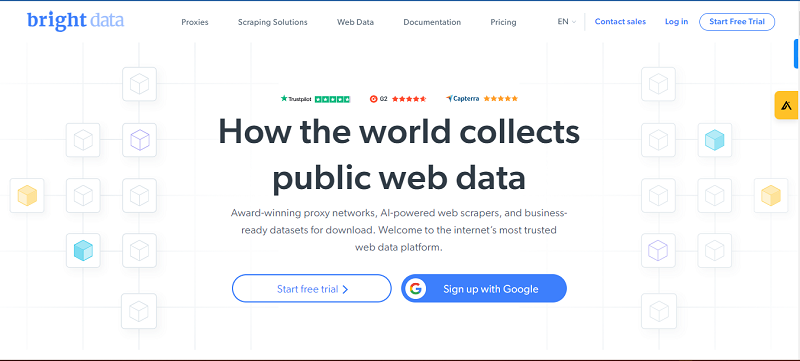“It is true that the Internet will change everything. It is not true that everything will change.”
— Paul Deninger, CEO of Broadview Capital Partners
Cloud computing has been viewed as a game changer by many businesses. It’s fast, inexpensive and highly scalable. Well, none of this matters unless you have a secure and reliable Internet connection to access the data.
The Internet has been recognized as an important tool for modern international business. It can revolutionize international commerce. Not only can the Internet help small to medium sized enterprises (SMEs) access easily to market and compete but it can also enable SMEs to respond flexibly to new international market opportunities. Nowadays, the majority of businesses are active internet users. Industry Canada (2009) indicated that 95% of businesses had internet access, 74% had a website, 69%were purchasing online and 13% were selling online. Moreover, Organization for Economic Co-operation and Development (OECD) reported that most companies are purchasing and selling over the internet and online transactions are now common in most of the countries such as Australia, Canada, Germany, Ireland, New Zealand, Switzerland and the United Kingdom. It would seem that the Internet can be considered as a strategic resource that can help companies achieve operational efficiency and functionality and enable them to compete more easily in the global marketplace.
Reuber and Fischer (2011) conducted a systematic review and reported that online reputation, online technological capabilities and online brand communities are significant in a firm’s success in pursuing international opportunities when competing in internet-enabled markets. In order to stand out in a competitive market and be able to attract investors, customers, and suppliers, it is of great significance for firms to develop an online reputation. Companies need to be both visible online and seen as providing high-quality goods and services.
In addition, online technological capabilities not only increase the efficiency of market transactions and enhance the learning process but also enable a company to discover and exploit international opportunities better and faster than competitors. According to Reuber and Fischer ( 2011), important aspects of a firm’s online technological capabilities are a) the extent to which web applications are integrated with back-end databases and systems; b) the firm’s ability to customize the online experience for particular markets (Website customization); and c) the firm’s technological opportunism.
According to Muniz and O’Guinn (2001), an online brand community is an online “specialized, non-geographically bound community, based on a structured set of social relationships among admirers of a brand”. Online brand communities can provide information about buyers, support the buying process and build positive brand meanings. Hence, they can help companies discover, evaluate and exploit international opportunities.
Scholars have argued that successful deployment of the Internet depends on the functional and organizational capabilities of the firm. A firm’s top management play a crucial role in the successful adoption of internet-related technologies. Entrepreneurial leaders who are innovative, proactive, commitment to the Internet and firm internationalization are able to exploit opportunities provided by the Internet capabilities. Leaders’ knowledge and skills in conducting business in international markets and their attitudes towards online initiatives affect Internet integration and application for international business.
As discussed above, the Internet offers many benefits to companies and their customers. The Internet can fundamentally change the nature of doing business and competition in many industries. It provides SMEs with new ways to conduct and develop international business, communicate ideas, and exchange information. Companies should select a new business model for their Internet venture. This new Internet business models can create value (efficiency, aggregation and customization) for market participants. “If the business model is unique or difficult to imitate, Internet firms can also capture some share of the created value and become profitable”. It is clear that firms’ managers should be competent, innovative and proactive in making decision about their existing business model components to increase value capture.
By Mojgan Afshari





